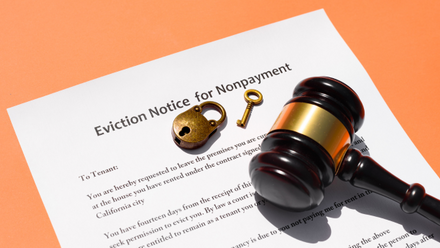Understanding Writs
If you begin the debt recovery process, understanding Writs issued through High Court Enforcement is important. In this blog, we will cover the fundamental knowledge of what Writs are, the different types of Writs and how debtors might respond.
What is a Writ?
A writ is a Court document that empowers a High Court Enforcement Officer to take specific actions to enforce orders of the Court.
These actions can include taking control of goods.
Find out more about what makes a debtor subject to High Court Enforcement action in our previous blog: “Fundamentals of Enforcement”.
What are the three types of Writs of execution?
-
Writ of Control: one of the most used Writs, it grants High Court Enforcement Officers the authority to seize and potentially sell the debtor’s goods to settle the outstanding debt.
-
Writ of Delivery: When a debtor is in possession of specific goods that rightfully belong to the creditor, the Writ of Delivery can be used for High Court Enforcement Officer’s to take possession of those goods and return them to the rightful owner.
-
Writ of Possession: This Writ is used as a last resort in property repossessions. This writ allows High Court Enforcement Officer’s to take control of a property, such as a house, if the debtor has defaulted on a mortgage or rental agreement.
You can find out more about Writs, with our Writs of Execution and Writs of Control Study Text when you work towards a CICM Qualification in High Court Enforcement.
Can a Writ be opposed?
Writs can be opposed in some cases. However, it is important to act swiftly and seek legal guidance. The reasons for opposing a Writ might include:
-
If the debt is not theirs or the amount of debt is incorrect
-
The debtor has a legitimate defense against the claim
-
An agreement to pay the debt has already been reached.
What happens when you ignore a Writ?
If a Writ is ignored, it can have significant consequences for the debtor. Here’s what could happen:
-
High Court Enforcement Officer’s can visit the debtor’s property after the statutory period of the Notice of Enforcement has expired (7 working days) to seize their goods
-
The value of the seized goods doesn’t cover the entire debt, leaving the debtor with a remaining balance to pay.
-
Court costs and additional fees can be added to the original debt, which will increase the financial burden
-
In extreme cases, ignoring a Writ of Possession can lead to the debtor’s eviction from the property.
Hopefully, this blog can give you a basic understanding of Writs. It’s important that you make debtors aware of the action to take upon receiving them. Now, with this knowledge, you can effectively navigate the High Court Enforcement process and recover outstanding debts.
More information can be found on the High Court Enforcement Officers Association website at www.hceoa.org.uk






